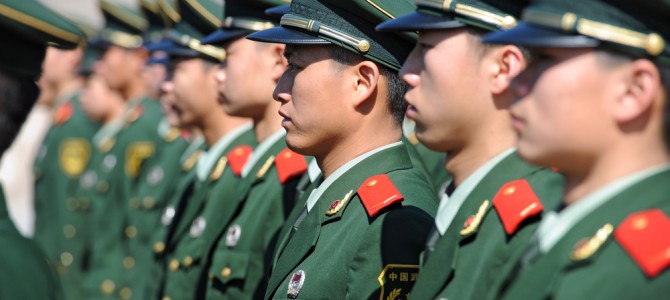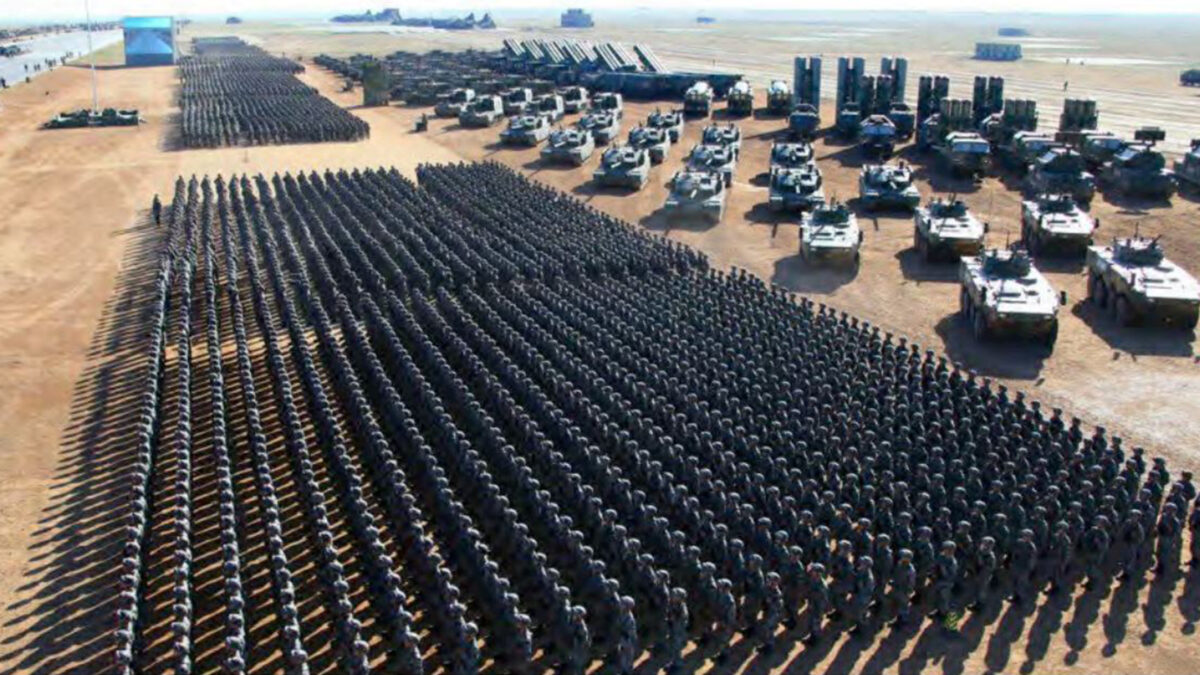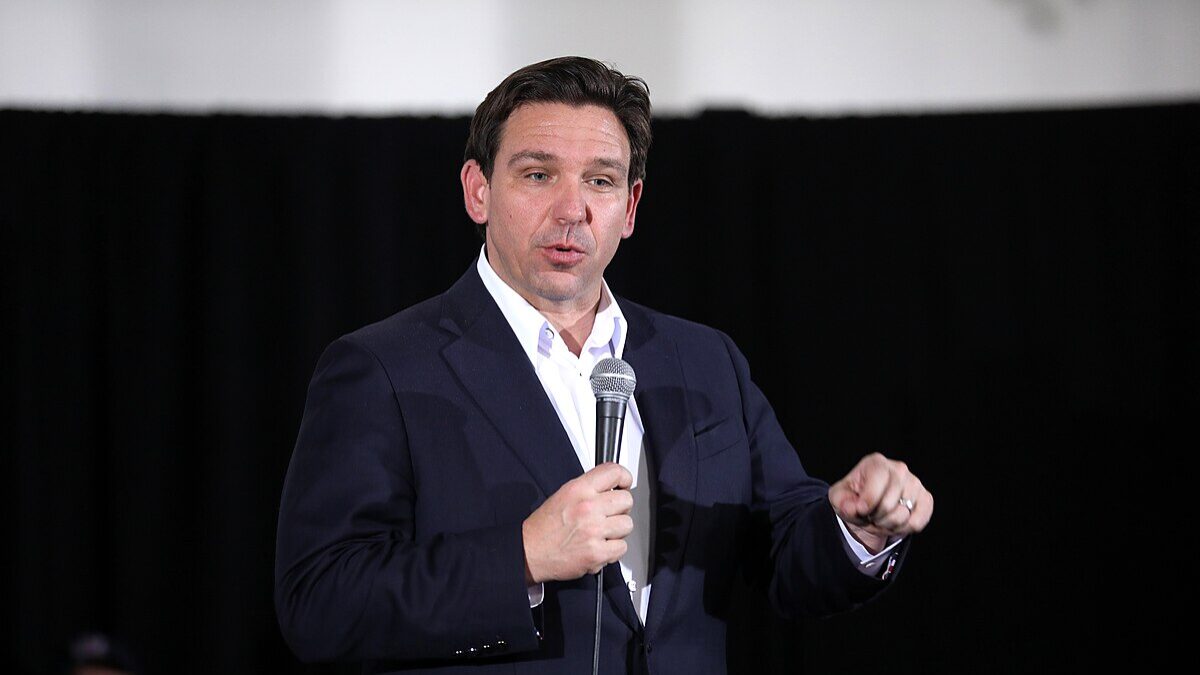
The United States is no longer a serious country.
Now, by this I do not mean that America is no longer a super-power. By any gross indicator of strength, the United States is as powerful as it’s ever been, perhaps more powerful than at any time in its history. It has a massive, highly productive economy, a military second to none, and an alliance that dwarfs all possible competitors. On paper, it’s still the only super-power on this planet (or on any other that we know of, so far).
But the status of a great nation is built on more than raw power. It includes intangible qualities like respect, admiration, and, yes, fear. We don’t need all three of them; no major power does. But we need at least one of them at any given moment, and right now, we’re bottoming out in each of these measures. President Obama may insist that America is now “the most respected country on Earth”—a claim even the normally more forgiving folks at PolitiFact rate as only “half-true”—but the Russians, Iranians, and Chinese clearly disagree, and for good reason.
The Chinese hack of the Office of Personnel Management is the most recent, and most obvious, example of how our status is going down the drain. This is a disaster of unimaginable proportions. The intelligence damage, including security-clearance information, will last for decades. (I, of course, am one of the millions of federal workers waiting to find out if my files are now in Beijing.) Almost as shocking as the size of this breach, however, is the fact that no one seems to care very much, including the Chinese, who have shown no concern at all.
An Act of War, Ignored
In any normal world, a super-power would not tolerate this kind of an attack. Perhaps more accurately, a true super-power would never have to endure such an attack in the first place, because other nations would be loath to engage in such a direct act of open hostility. States do lousy things to each other all day long, but the wholesale and brazen theft of personnel records is a different kind of espionage. The scale is so vast that it is a direct challenge to the United States of America.
In response, the most powerful country in the world has drawn itself up to its full height, clenched its mighty fist in anger, and….contracted out for some identity-theft protection for its employees. The majesty of the enraged eagle is truly remarkable to behold.
The critics say the government wasn’t very good at protecting that information. It was wearing its data-management skirt a little short this time, so it deserved this kind of attack. To argue that sloppy information security makes what happened understandable, however, is to miss a far larger point: countries, as a rule, do not do whatever they can do, they do what they think they can get away with, and those are two different things.
There are plenty of things the United States could do, every day, to other nations, including Russia and China. Some of them we do, and some we don’t, because we have some sense of the various costs and risks involved. In those cases where we enjoy a major advantage over an opponent, we can take more direct action, like sending Stuxnet to the Iranians. (Whether we should have been bragging about it is another question.) But we do not simply steal, attack, or destroy everything we can find, because we recognize this could make life a little tougher among nations we have to live with every day.
Our Enemies Display Open Contempt
The OPM hack shows that China has no such compunctions. Our tepid response, sadly, shows that Beijing may have guessed at our response accurately. There are many things we could do, including public denunciation of the act, demarches, sanctions, and other public actions, along with more shadowy things I won’t speculate about here. Instead, we’re watching the Chinese military build fake islands in the middle of the sea while the president tries to figure out why his own party won’t give him more authority to trade with other nations in Asia.
To get some idea of the scale of this problem, imagine if this whole fiasco had happened the other way around. Think about the tense situation we’d be in today if China said American hackers, at the behest of the U.S. government, managed to steal the personal information of every employee of the Chinese government. Somehow, I doubt that Beijing’s response would be to call Life-Lock for a bulk rate.
The situation elsewhere is no better. The Iranians, after repeated delays, have graciously consented to permit us to beg them for a nuclear deal that they have already made clear will not bind them on the issues most important to us. The mullahs, obviously fearful and full of deep respect for the Obama administration, seized a ship and issued fiery denunciations of the West while we’ve been pleading with them to allow us to legitimize their aggressive ambitions.
And then there are the Russians. Never has a Kremlin regarded an American administration with such a combination of contempt and disrespect. To reverse Michael Corleone’s famous line, it’s not business, it’s personal. Yes, the Soviet regimes before this harbored deep hatred for Ronald Reagan, treated Gerald Ford with utter patronization, and regarded Jimmy Carter as a hectoring bumpkin. But they feared and respected Reagan, and they actually liked Ford even while running roughshod over American objections to Soviet policies. To some extent, they even came to fear Carter (or at least the Carter that emerged as a born-again Cold Warrior after 1979).
Today, the Russians act as if America does not exist. They fly aggressive missions against North America, threaten the Europeans with nuclear attack, and slap our diplomats down for even hinting at their violations of a longstanding treaty. They believe NATO is merely a showy façade, a Potemkin alliance led by absentee American landlords to whom they need pay no attention other than to insult us.
Weakness Invites Aggression
All of this is the end result of almost seven years of passivity in foreign affairs. Candidate Obama promised to talk to countries like Iran without preconditions, which is exactly how not to approach negotiations with people who mean you harm. Later, President Obama adopted a visionary policy of “not being George W. Bush,” despite the immediate and mounting evidence this would not work as a substitute for an actual national-security strategy. Since the debacle of the 2014 midterm elections, the president and his advisers have doubled down, stubbornly clinging to the idea that only lesser mortals really worry about obvious flummery like “national interest,” “reputation,” or “security.”
None of this can end well. Power without intention or principle is meaningless. It does us no good to amass the greatest intellectual, military, and economic capabilities on earth if the only result is to apologize for our own superiority, then to nod sadly when others attack us for having the temerity to exist. We were once a super-power. We were once a serious nation. We can be both again, if we have the will.
For now, however, it seems our enemies understand our situation better than we do.









